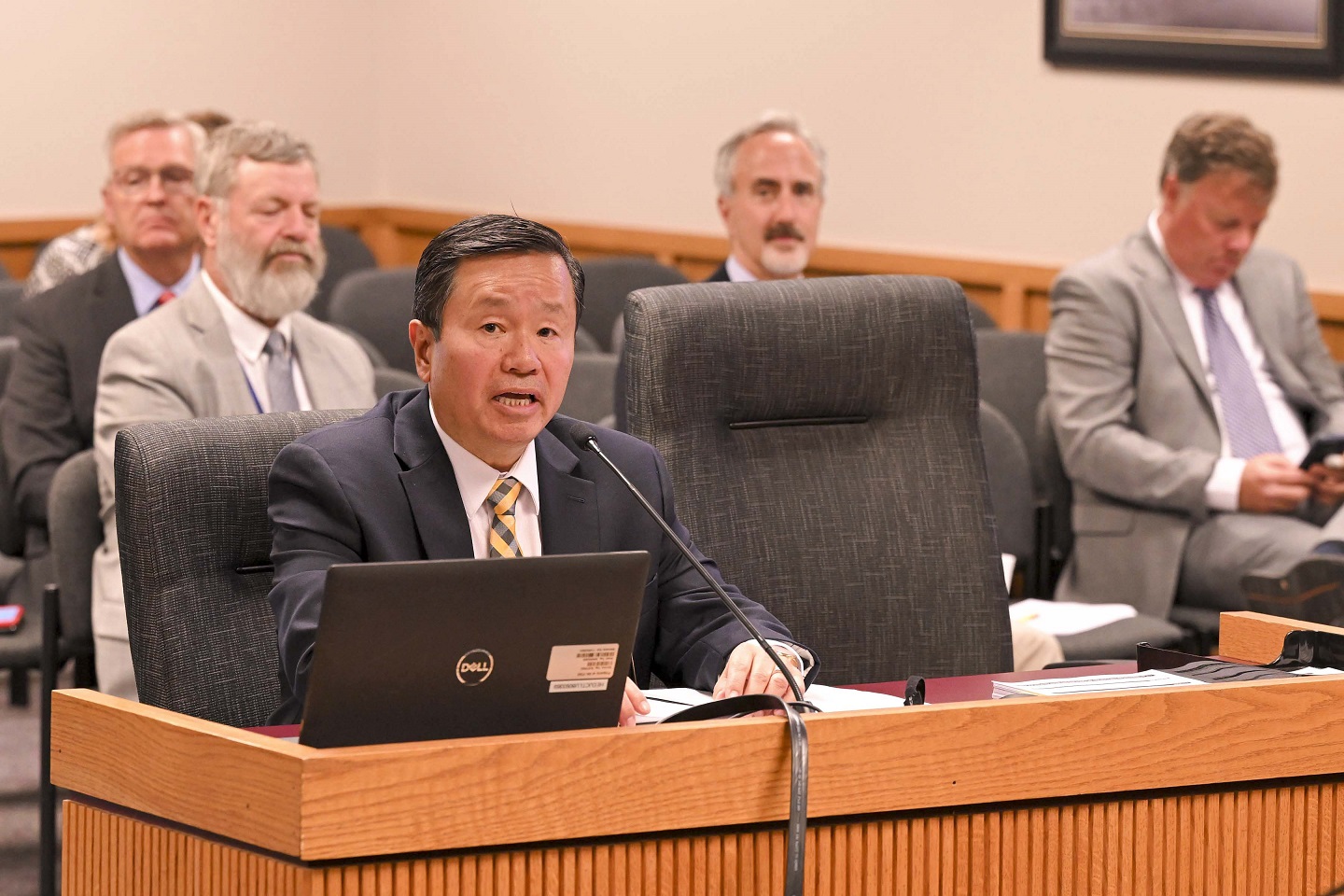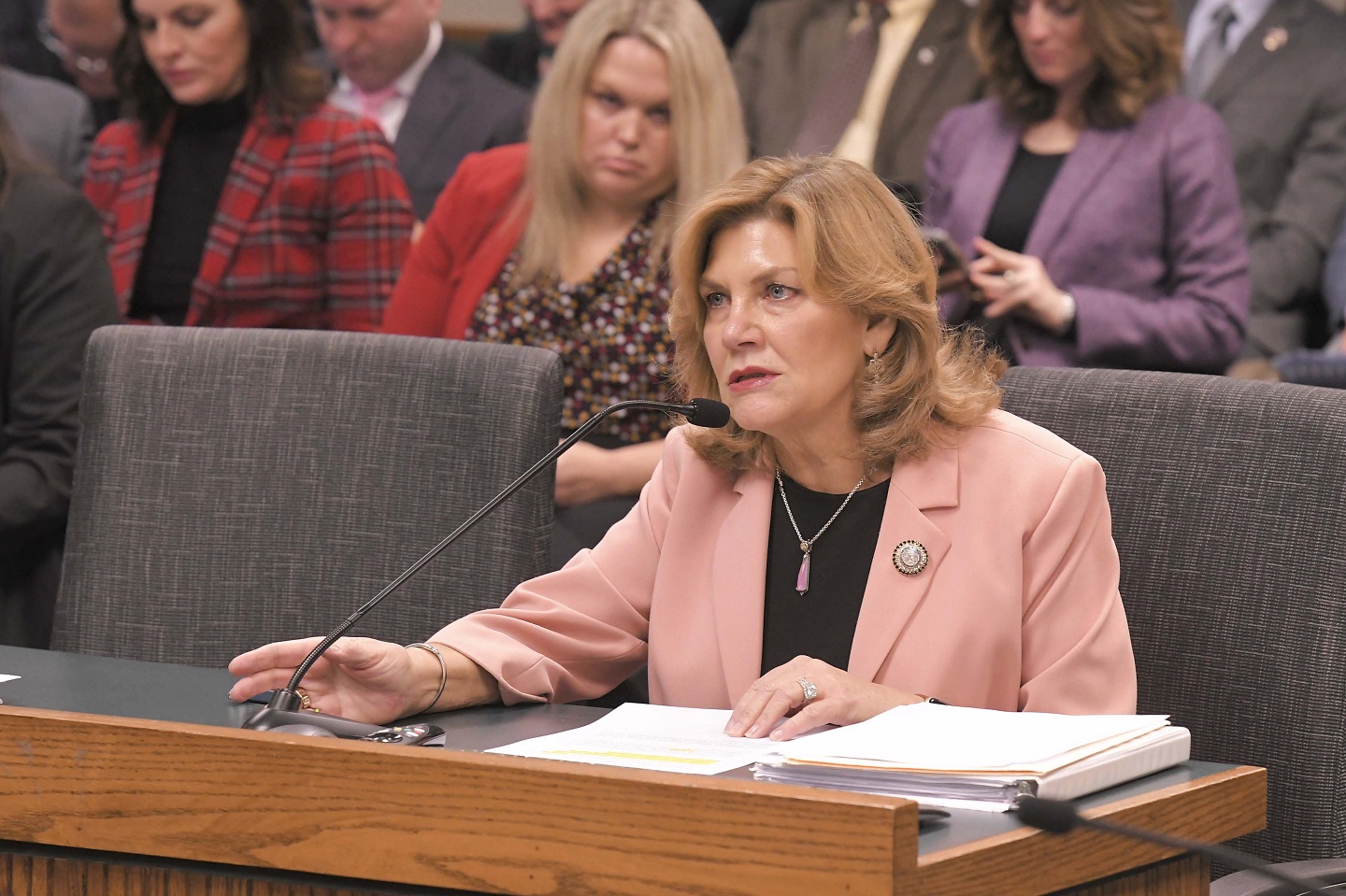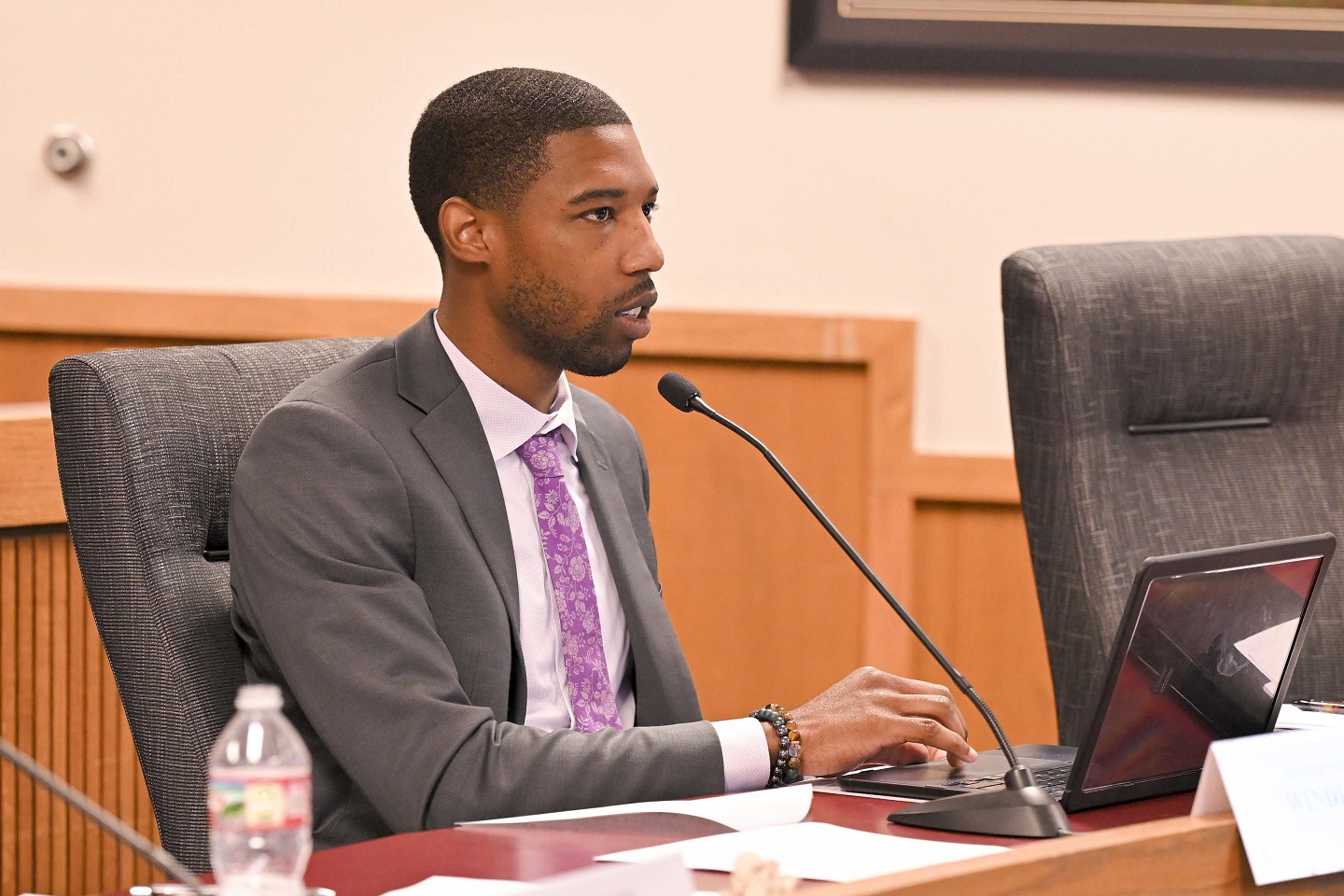Missouri House Republicans spoke to reporters and fielded questions after the House wrapped up work for the week.
Tag: Brenda Shields
House panel seeks success in creating higher ed performance-based funding plan
A House effort to arrive at a successful performance-based model for funding the state’s colleges and universities launched on Tuesday.
The House Special Interim Committee on Higher Education Performance Funding held an introductory hearing, in which it heard several presentations about the past attempts at performance-based funding.
Committee Chair Brenda Shields (R-St. Joseph) said it’s important to know what’s come before.
“This has been attempted several times. We haven’t been successful,” Shields said.
She said if there is to be a chance for a better result this time, everyone must have a seat at the table.
Shields said if not all of the state’s institutions have buy-in, any new formula will be doomed.
What the legislature is using now in setting higher education funding is a “base plus” model, but Shields said no one has been able to tell her where that base came from.

Tuesday’s hearing set the Department of Higher Education to the task of creating a work group with representation from all the institutions of higher education in the state.
Shields said the goal is not to pass a new funding mechanism in the 2025 legislative session.
The committee will meet three more times this year.
House effort to offer more, and cheaper, child care advanced by committee
A proposal aimed at expanding child care in Missouri, which received broad House support last year, is among the earliest of bills to be approved by a House committee this year.

Numerous supporters, including many from Missouri’s business organizations, testified at the hearing about what they say is a crisis facing the state’s employers and, therefore, the state as a whole.
“Perhaps the single greatest barrier to workforce participation today is the lack of child care resources,” said the chairman of the Workforce and Infrastructure Development Committee, Representative Louis Riggs (R-Hannibal).
Representative Brenda Shields’s (R-St. Joseph) House Bill 1488 would create three new tax credits, one of which is for employers who help fund child care for their employees, and one that is for providers who boost their employees’ salaries or improve their facilities.
Shields told the committee that 58 percent of businesses in Missouri report that child care is a barrier to recruiting employees, and 63 percent say it is a barrier to retaining employees. Parents says child care is often unavailable, and 43 percent of them say when it is, it is unaffordable.
She said her proposal would let communities respond to these issues in whatever ways best suit their needs.
Besides the economic issues, Shields said improving child care throughout Missouri would mean improving the lives of children in the state and offering stability to more of them.
The proposed Child Care Contribution Tax Credit would be for up to 75 percent of a contribution used to improve a child care provider’s facility, equipment, or services, or to improve the salaries of a facilities’ staff. The Employer Provided Child Care Assistance Tax Credit would be for up to 30 percent of child care expenditures paid by an employer. The Child Care Providers Tax Credit would be for up to 30 percent of the cost of improvements made by providers, such as facility or service expansion or employee raises.
Each program would be capped at $200,000 per taxpayer, and $20 million overall, however an additional fifteen percent would be allowed in areas considered “child care deserts,” regions of the state with the most acute discrepancies between children in need of care and availabilities.
In testifying about the high price of child care, Kara Corches with the Missouri Chamber of Commerce and Industry said that care for her one child last year cost more than $21,000. Upon hearing this, Representative Travis Wilson (R-St. Charles) said, “That’s with one child, so if a family has two children, even if they got a multi-child discount at a child care provider, they could still be looking at, say, $30,000 a year. I think that kind of makes the case all on its own.”
Corches said providers are not to blame.
One provider with three facilities in the Jefferson City area, Nicci Rexroat, told the committee, “We’re talking about middle class families with two kids who are paying $35,000 a year for early childhood [care]. We can’t raise our rates any more and our staff are still making well below what they deserve.”
Emily van Schenkhof with The Missouri Children’s Trust Fund, which works to prevent child abuse, reminded the legislators that the issue isn’t just about the workforce and the economy.
“All children deserve to have access to safe, quality child care and that is something that we are not doing right now,” van Schenkhof said.
Shields told the committee Missouri can afford these tax credits.
“It is estimated that Missouri’s economy last year lost $1.35 billion because we didn’t have enough workers. If we collected the tax on those employees … that’d be $280-million,” Shields told her fellows.
She noted that when the state tries to get businesses to come here, it touts its location, its access to multiple modes of transportation, and its infrastructure, but businesses want to know that they will be able to find employees, and that those employees’ ability to work will be supported.
“I truly believe if we solve the child care crisis … businesses will flock to our state,” Shields said.
Last year’s version of Shields’ legislation was voted out of the House 133-20 but it stalled in the Senate. She hopes it will fare better this year.
The committee this week voted 10-0 to advance Shields’ bill.
Physical therapists to no longer require referrals after Governor signs new law
The first legislation signed into law out of this session will get Missourians in front of the caregivers they need more quickly and with less cost.

Governor Mike Parson (R) on Thursday signed Senate Bill 51, sponsored by Senator Karla Eslinger (R-Wasola), which will allow people to go to physical therapists without having to first visit another doctor and get a referral.
“Currently, patients must visit a physician before they can make an appointment with a physical therapist. This costs the patient additional money and delays in returning to their life before the injury,” said Representative Brenda Shields (R-St. Joseph), who handled the bill in the House. “It is time for Missourians to choose their own healthcare path and get their lives back.”
Shields has spoken passionately about this proposal largely because of the role physical therapists have played in her own life.
Shields said no matter what she does from here on, she expects the passage of this language will stand as a highlight of her political career.
Shields announced to her colleagues in the chamber on Thursday morning that the bill would be signed, and her physical therapist Dr. Ben Perkins was her guest in the chamber then and at the bill signing.
Representative Deb Lavender (D-Manchester) is a physical therapist. She said it’s frustrating to have to turn away people who come to her, knowing she could ease their pain.
The proposal has been around for years in the legislature, with Governor Parson saying he handled it early in his legislative career which began in 2005.

“I couldn’t be more pleased signing this, being the first bill that we’re really going to sign,” said Parson. “I think one thing we learned is how important healthcare is no matter where you live in the State of Missouri, and how many opportunities people have to get it. By doing this bill we’re going to expand that to many more people and cut a lot of bureaucracy out of the way simply to care for people, and I think that’s what we all wanted to do.”
Under the bill, a physical therapist can refer a patient to another health care provider if they exhibit certain conditions which the physical therapist is unable to treat, or if the patient’s condition doesn’t improve within 30 days or ten visits.
The House voted on April 12 to pass SB 51, 146-2. With its signing, Missouri joins 47 other states who already allowed people to go to physical therapists without first getting a referral. The bill’s provisions take effect August 28.

